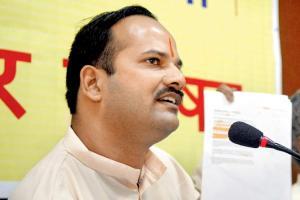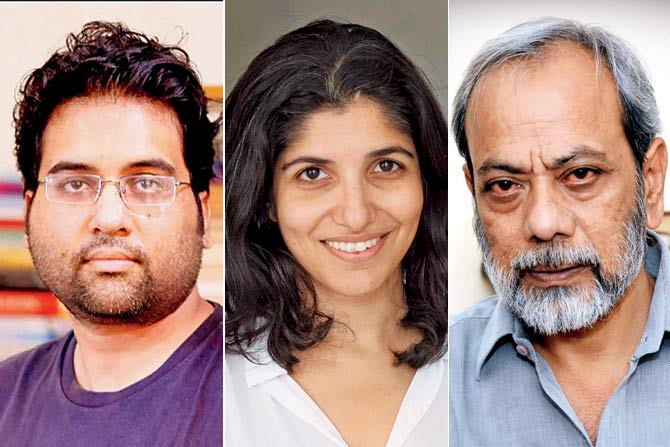Lawsuits are bad news for publishers, but if you have a solid book, backed by facts, there's little reason to not defend it. Juggernaut's recent win offers hope to the book industry and readers

It's not always that a publisher decides to back a book, especially one slapped with a multi-crore lawsuit, and which, in a politically-sensitive times, calls out "fringe" Hindutva organisations. But that's what Chiki Sarkar did in 2018. Two years on, the founder of the up-and-coming independent publishing house, Juggernaut Books, is celebrating a rare feat on the Indian publishing scene. Last month, Juggernaut won a civil defamation suit filed by Goa-based Sanatan Sanstha against its 2017 release, Shadow Armies by Dhirendra K Jha. It was a landmark victory for free speech. This is not the first time that Sarkar has had to defend a book in court. In 2017, Baba Ramdev had an injunction put on Priyanka Pathak-Narain's Godman to Tycoon: The Untold Story of Baba Ramdev. The matter is currently pending in the Supreme Court.
ADVERTISEMENT
Attacks on books aren't new. In fact, in 2018, the American Library Association (ALA) reported that 531 materials, including books, magazines and databases, were subject to attempts at removal or restriction in the United States. India is no different. More often than not, controversial books bring along a slew of legal notices and banning threats. If the issue spirals, like it did last year with The Art of Tying a Pug, a children's book by Natasha Sharma and Priya Kuriyan (Karadi Tales) leaving the Sikh community hurt—the safest option is to withdraw the book, because small-time publishers rarely have the financial bandwidth to challenge a ban.
But Sarkar says, everyone should fight. "Lawsuits are always bad news, so I wasn't happy [when it happened]. But we didn't have any doubt that we had published a good book and that we had to stand by it...I didn't think too hard about the damages—we would have come to that, when we had to," she says.
India, says the Delhi-based entrepreneur, actually has fairly good legal precedents on defamation cases against books. "The defense against defamation is truth. As long as you are clear that the book is defensible and that all the claims it makes can be backed up, there is no cause for fear. I had as much a chance of winning as not, and we were on very solid ground legally, so why run away?"
Incidentally, the case against Shadow Armies was thin from the start, says Juggernaut's lawyer Satyajit Sarna. The book, on the other hand, was result of rigorous research. The first petition that Sanatan Sanstha filed in 2018, didn't specify which word, sentence or paragraph, had offended them. "The thing with defamation suits is that they have to be carefully drafted to spell out what exactly has defamed the petitioner. Sanatan Sanstha's suit didn't include details. We went after them for filing a suit, which did not have strong grounds to survive. They got an opportunity to fix it, but by then, it was too late, so we managed to get it rejected," says Sarna, over a telephonic interview. But even the weakest of suits, unfortunately endure. "The 'process' is the punishment in the Indian Judicial system. Even on something as thin as this case, they [Sanatan Sanstha] were able to keep Juggernaut in court for two years. It's [legal battles] expensive, and can be very inconvenient for the parties involved."
 Kanishka Gupta, Chiki Sarkar and Dhirendra K Jha
Kanishka Gupta, Chiki Sarkar and Dhirendra K Jha
For Jha, the win came as a big relief. "Attempts to suppress journalistic activities, has become very common. It also obstructs your work," he says. While Jha is grateful to Juggernaut for standing its ground, he says that "journalists, researchers or writers facing defamation have to learn to stand up in their individual capacity." "Because, if you are confident that what you have written is based on solid facts, there is no reason to back out."
Priya Kapoor of Roli Books remembers a case from 20 years ago. Roli was hauled up for publishing "pornography" in the guise of Kamasutra. "Each of the artworks in the book were hundreds of years old and deemed to be a part of our heritage. Fortunately, the case went in our favour, but not without of unnecessary anxiety and expense," she says in an email interview.
As publisher, Kapoor says she ensures that a potentially sensitive manuscript is vetted by lawyers. "We discuss the lawyer's recommendations with our authors and decide which ones to take on board and what to take a risk on. Lawyers tend to be on the side of caution, so it's up to us to decide how much of a calculated risk we want to take," she says. "In most cases I would say, we go all out. Recently, we published a book where certain segments could have been seen as potential contempt of court. It was our responsibility to act sensibly and protect the author while not diluting the core of the book."
Literary agent Kanishka Gupta, founder of Writer's Side, says that agents can never be taken to court. Neither are they liable to pay the legal fee and damages in case the judgement goes against their author. But it does have "emotional and reputational consequenes". "One has to deal with emotionally and financially distressed authors and publishers who may feel a sense of mistrust towards the agent," he says.
As a precautionary measure, he does have a legal consultant to go through controversial content.
He, however feels that some of the multinational publishing houses are less risk averse than fierce independent publishers "because of corporate restrictions, bureaucracy, fear of controversy and personal safety". "But look at Chiki Sarkar. In one of my first meetings with her, she told me that defending her authors and books against spurious lawsuits was a life-long mission. Knowing her, she will accomplish it soon," says Gupta.
Catch up on all the latest Mumbai news, crime news, current affairs, and also a complete guide on Mumbai from food to things to do and events across the city here. Also download the new mid-day Android and iOS apps to get latest updates
 Subscribe today by clicking the link and stay updated with the latest news!" Click here!
Subscribe today by clicking the link and stay updated with the latest news!" Click here!






